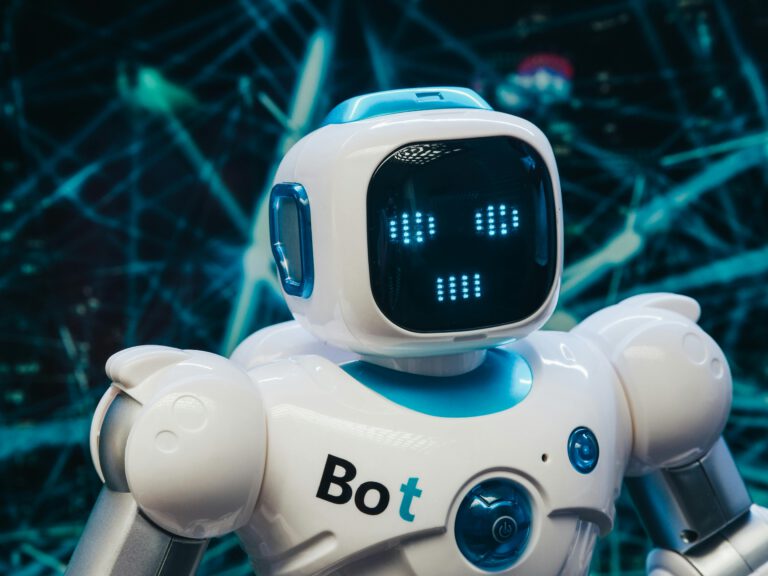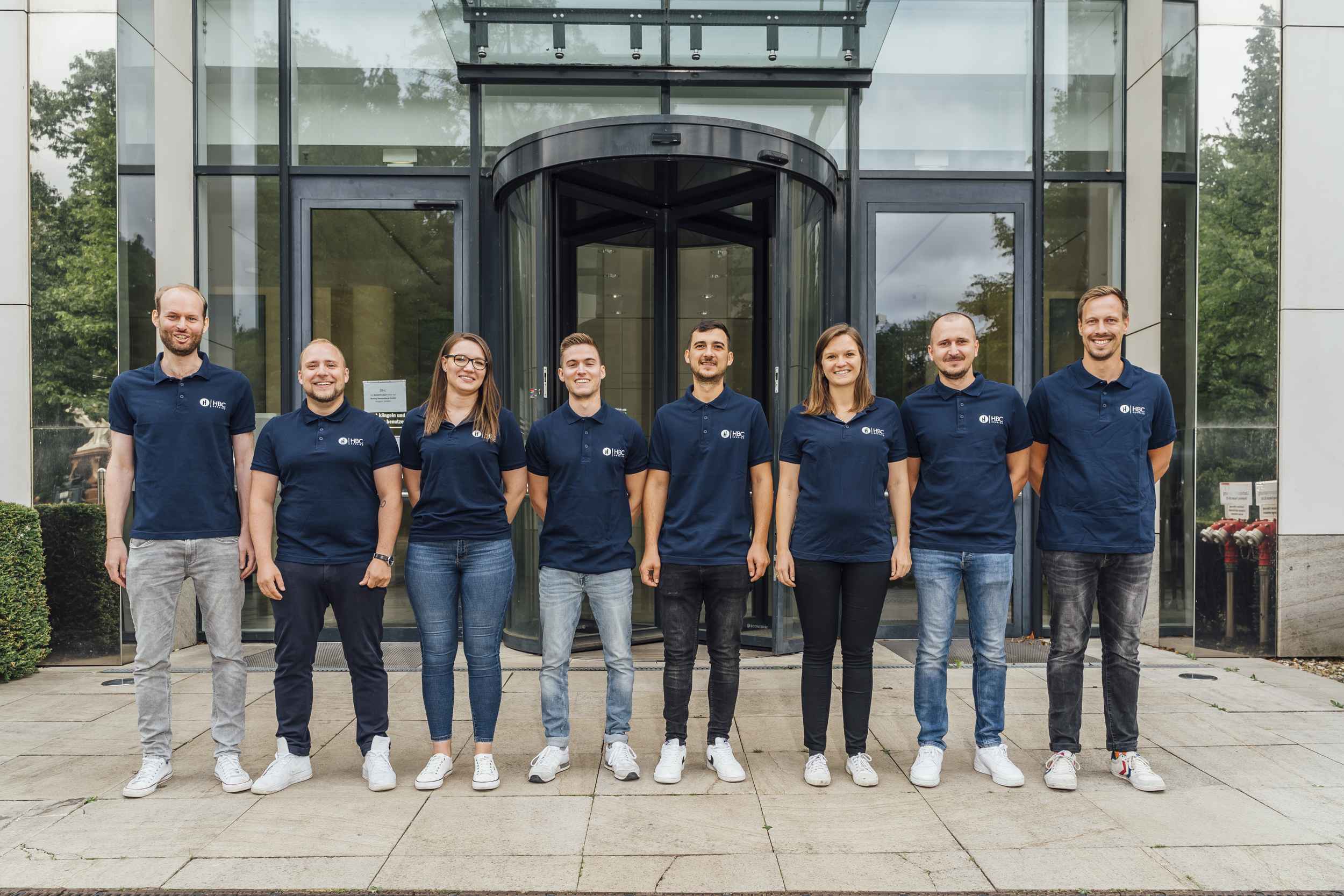HBC at Interclean 2024 in Amsterdam: the industry's focus is clear
From May 14 to 17, Interclean 2024, the industry meeting par excellence for commercial cleaning, took place in Amsterdam. HBC was there to get a first-hand impression, gain insights and exchange ideas directly with the most important industry players. In this article, you can find out which topics stood out and what conclusions HBC took away for its customers.
Interclean 2024 in Amsterdam
Interclean in Amsterdam, which was first launched in 1967, has established itself over the decades as the world's leading trade fair for the cleaning and hygiene industry. Originally conceived in an Amsterdam café by two window cleaners, this trade fair reflects the dynamic development and continued growth of the cleaning industry. With an initial exhibition space of just 2,000 square meters, Interclean has grown into a gigantic event that in 2018 already covered 70,000 square meters in 13 exhibition halls. This impressive expansion underlines the growing importance of the trade fair, which is not only a showcase for innovations and technological advances, but also an indispensable platform for networking and knowledge exchange in the global cleaning industry.
The importance of Interclean for the industry can hardly be overestimated. It serves as a central meeting point for the presentation of the latest products and technologies and as a forum for discussing current challenges and future trends. The show has also proven to be an important catalyst for the introduction of sustainable and innovative practices, making it an unmissable event for cleaning and hygiene industry professionals.
The importance of Interclean for the industry can hardly be overestimated. It serves as a central meeting place for the presentation of the latest products and technologies and as a forum for the discussion of current challenges and future trends. The show has also proven to be an important catalyst for the introduction of sustainable and innovative practices, making it an unmissable event for cleaning and hygiene industry professionals.
After a brief decline in numbers due to the coronavirus, Interclean has been growing again since 2022 and its visitor numbers are increasing continuously and steadily. With around 900 exhibitors in 11 exhibition halls, Interclean 2024 once again attracted visitors from all over the world this year. Once again, leading decision-makers and experts from various sectors, from industrial and commercial to medical and institutional facilities, came together, underlining the importance of the trade fair and demonstrating the resilience of the cleaning industry.
HBC at the Interclean
HBC attended Interclean 2024 in Amsterdam with a clear goal: to follow the latest trends in the industry and keep our finger on the pulse. This strategic focus allowed us to absorb the latest knowledge directly from leading industry experts in order to integrate it into our processes. An outstanding example of this was the presentation by Thomas Ball from Lünendonk, who took an in-depth look at the current state of sustainability in the cleaning industry. This commitment to continuous education and innovation underlines HBC's ambition to not only keep pace with technological developments, but also to be a leader in the implementation of sustainable practices. Attending Interclean 2024 thus provided HBC with an excellent platform to share advanced solutions and best practices that can be directly integrated into their service offerings to further increase the efficiency and sustainability of their services.
Key topics at Interclean
At Interclean 2024, the HBC delegation highlighted two key topics in particular that are currently affecting the industry: Firstly, sustainability in all aspects of commercial cleaning. On the other hand, cooperation with autonomous machines, i.e. robotics, took up a much more prominent place at the trade fair than two years ago. Both key topics are examined in more detail in the following article.
Although software solutions were also represented at the trade fair, developments in this area were less striking compared to 2022. Nevertheless, the presence of numerous software providers underlines the importance of digital solutions in the industry.
Sustainability: the ball is in the service providers' court
In today's world, sustainability is no longer just a buzzword, but an essential business strategy that affects companies in all industries, but especially in facility management and cleaning. The Lünendonk study from 2022 already showed that sustainable practices in the cleaning industry go far beyond the use of environmentally friendly products. They encompass a variety of aspects, ranging from reducing water consumption to minimizing energy consumption. This was also clearly evident at Interclean 2024: Almost every aspect of commercial cleaning is now being scrutinized and professionalized in terms of sustainability aspects.
A key aspect of sustainability in the cleaning industry is the use of environmentally friendly cleaning agents and hygiene products. These products are not only not harmful to the environment, but also to the health of the employees who use them on a daily basis. Packaging is also taken into account here, so that manufacturers attach great importance to the degree of recycling of all packaging elements. Here, the first suppliers adorn themselves with an approach called "cradle-to-cradle", which promises that all components will be recycled. Overall, the transition to environmentally friendly alternatives is therefore not only a question of environmental responsibility, but also of occupational safety and costs.
The resource-saving use of machines and appliances is playing an increasingly important role. Modern cleaning technologies offer opportunities to significantly reduce energy and water consumption. For example, sensor-controlled cleaning systems enable more efficient use of resources by only activating them when it is really necessary. In addition, the cost-efficient measurement of all consumption variables, whether water or electricity, for example, is advancing, which means that service providers are receiving more and more information in close cooperation with property operators, sometimes even in real time. Based on this information, optimization approaches can be developed that can lead to benefits for all parties involved.
The social component of sustainability, in particular the health and safety of employees, is also of crucial importance. Working methods that are gentle on the body are not only important from an ethical point of view, but can also increase employee loyalty and reduce staff turnover. This is particularly important in the cleaning industry, where physical strain is often part of everyday life. At Interclean 2024, this was demonstrated by a number of products that make a positive contribution to ergonomic working methods. However, the extent to which these approaches have a truly positive cost-benefit effect, both for employees and employers, cannot be assessed in the exhibition hall, but must be systematically worked out and evaluated in dedicated pilot projects.
Another important point is environmental management within the companies themselves. Certifications such as ISO 14001 are an indicator of serious environmental management. These certifications help companies to systematically improve their environmental performance and communicate it transparently. On the other hand, certifications help customers to objectively assess the extent to which service providers meet standardized environmental management criteria. At Interclean 2024, it became clear that all aspects of sustainability are likely to be reflected in the criteria of standardized environmental management in the medium term. This means that this is no longer an "optional factor" for service providers, but a relevant component of overall corporate management.
HBC has recognized these challenges and pursues a holistic approach to sustainability, which is divided into three pillars. Firstly, the employees: HBC attaches great importance to working in a way that is kind to the body and to retaining employees. This includes regular training and a healthy relationship between supervisors and cleaning staff.
Secondly, sustainability in the provision of services and on the premises: HBC uses environmentally friendly cleaning agents and hygiene products and ensures that machines and equipment are used in a resource-efficient manner. This not only helps to protect the environment, but also improves the efficiency of the cleaning processes. We do not shy away from new projects in order to challenge the status quo at HBC and achieve the best possible results for our employees and customers.
Thirdly, the company's environmental management: HBC is committed to electromobility and relies on certifications and CO2 compensation to minimize its ecological footprint. Customer projects are also considered and implemented from a sustainability perspective.
This shows that HBC, even as a medium-sized company, pursues a comprehensive approach to sustainability, which is not just a partial aspect, but an integral part of the corporate philosophy.
Robotics: drastic increase in the number of providers
Robotics in the cleaning industry has undergone a significant transformation in recent years. This is reflected not only in the improved technology and efficiency of the robots themselves, but also in the dramatic increase in the number of suppliers providing robotic solutions for the cleaning industry. This development was clearly visible at Interclean 2024, where a large number of new and established companies presented their innovations. It is therefore not surprising that a robotics solution won this year's Innovation Award in the Intelligent Technologies and Digitalization category.
The increasing number of providers is closely linked to the challenge of the shortage of cleaning staff, among other things. The primary aim is therefore not, as might initially be assumed, to replace existing employees, but rather to supplement existing teams or provide a reliable replacement option in the event of a shortfall. This is where the term "co-botics" comes from, which refers to the cooperation between machines and humans.
Obviously, the economic aspect of using robots is still relevant. Even in the case of the coexistence of man and machine described above, it must be ensured that the cost base is not completely unbalanced by the use of robots. A Lünendonk study assumes a possible increase in efficiency of up to 10% in some cases. Nevertheless, we view this estimate more as confirmation that efficiency is not significantly lower than when experienced employees are deployed.
Another factor in the growth of robotics in the cleaning industry is the advanced technology that enables ever more precise and effective cleaning. Modern cleaning robots are equipped with sensors and artificial intelligence that enable them to move autonomously in complex environments and recognize obstacles. These technologies enable robots to carry out thorough cleaning even in difficult or hard-to-reach areas. This fact became more than clear at Interclean 2024: all manufacturers are trying to impress in the field of robotics with both the hardware and the built-in software. Significant investment costs are being incurred in order to make the "intelligence" of the autonomously operating machines as suitable as possible for the various applications. In many ways, it is comparable to the development of autonomous vehicles: users see the machine, the hardware, but the real technological progress is usually achieved at the software level.
Another aspect of this is the increasing spread of IoT (Internet of Things) and the integration of data analysis into cleaning processes. By collecting and analysing data, companies can optimize and personalize their cleaning processes, leading to a more efficient use of resources and improved customer satisfaction. Although this is also possible without autonomous assistants, it is only possible indirectly through data input from cleaning staff or the use of sensors on cleaning equipment.
Despite these advantages, companies face significant challenges when implementing robotic solutions. These include the not insignificant initial investment costs, training employees to use new technology and integrating robots into existing workflows. These challenges require careful planning and strategy to ensure that the introduction of robots has a positive impact on the company. In order not to lose the overview in this area of conflict, there are the first companies that are positioning themselves on the market as service partners specifically for the use of robotics solutions. With independent technicians, they support service providers in every step of selection, implementation, training and maintenance, so that part of the risk of switching to robotics can be eliminated.
In this dynamic environment, HBC has recognized that adapting to new technologies is crucial in order to remain competitive and meet the changing needs of customers. HBC actively follows the latest trends in robotics and integrates them into everyday cleaning operations through pilot projects. These pilots allow HBC to test and adapt the technology in real-world environments to ensure it meets the specific needs of its customers.
HBC stays on the ball for customers
HBC's participation at Interclean 2024 in Amsterdam has once again underlined how crucial it is for the company to keep its finger on the pulse and continue to develop. The trade fair provided an excellent platform to gain deeper insights into current and future trends in the cleaning industry, particularly in the areas of sustainability and robotics.
In the area of sustainability, HBC has made it clear that the company pursues a holistic approach based on three key pillars: the health and safety of employees, ecological responsibility in the provision of services and comprehensive environmental management. This strategy enables HBC not only to minimize the environmental impact of its activities, but also to improve working conditions and strengthen employee loyalty.
Robotics is another area of focus that is shaping the future of the industry. HBC has recognized the growing number of providers and advanced technological developments and is using these insights to test and implement innovative robotic cleaning solutions through pilot projects. These initiatives are designed to increase efficiency, reduce costs and improve customer satisfaction through higher cleaning standards.
HBC's commitment to continuous improvement and innovation shows that the company is not only ready to face the challenges of the future, but is also actively working to master them. By consistently developing its services and adapting to new technologies, HBC stays on the ball for its customers and secures an important competitive advantage in the dynamic world of facility management.






